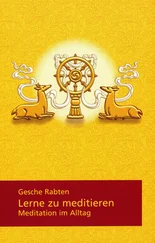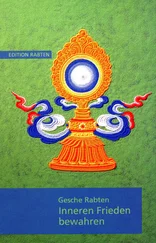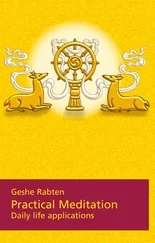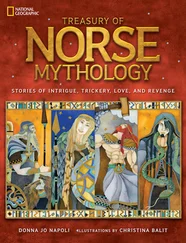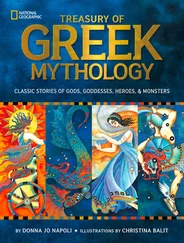Géshé Rabten - Treasury of Dharma
Здесь есть возможность читать онлайн «Géshé Rabten - Treasury of Dharma» — ознакомительный отрывок электронной книги совершенно бесплатно, а после прочтения отрывка купить полную версию. В некоторых случаях можно слушать аудио, скачать через торрент в формате fb2 и присутствует краткое содержание. Жанр: unrecognised, на английском языке. Описание произведения, (предисловие) а так же отзывы посетителей доступны на портале библиотеки ЛибКат.
- Название:Treasury of Dharma
- Автор:
- Жанр:
- Год:неизвестен
- ISBN:нет данных
- Рейтинг книги:3 / 5. Голосов: 1
-
Избранное:Добавить в избранное
- Отзывы:
-
Ваша оценка:
- 60
- 1
- 2
- 3
- 4
- 5
Treasury of Dharma: краткое содержание, описание и аннотация
Предлагаем к чтению аннотацию, описание, краткое содержание или предисловие (зависит от того, что написал сам автор книги «Treasury of Dharma»). Если вы не нашли необходимую информацию о книге — напишите в комментариях, мы постараемся отыскать её.
Treasury of Dharma — читать онлайн ознакомительный отрывок
Ниже представлен текст книги, разбитый по страницам. Система сохранения места последней прочитанной страницы, позволяет с удобством читать онлайн бесплатно книгу «Treasury of Dharma», без необходимости каждый раз заново искать на чём Вы остановились. Поставьте закладку, и сможете в любой момент перейти на страницу, на которой закончили чтение.
Интервал:
Закладка:
We may think that a person’s ill-health comes from not taking care of himself – again, this is a contributing factor. We can also find examples relating to a person’s speech. Whatever some people say, even if they are not very articulate, it is believed and trusted in by others. This is a result of previous wholesome actions. A good vocal Karma has been generated by such activities as always telling the truth and avoiding lying and gossip. The ability of someone like this to arouse trust in others through his speech is a result of these virtuous actions. On the other hand, there are times when an eloquent and truthful person is unable to get people to believe what he says. This is a result of accomplishing Karma accumulated in previous lives through such actions as lying, cheating and idle gossip.
There are countless situations in life similar to these and each of them is the specific result of the combination of causes generated in the past with circumstances arising in the present. All kinds of situations can arise in this way. Because we all want to lead happy and satisfying lives, it is extremely important while we now have the chance to acquire the causes for happiness, to be very careful about our actions and to make use of this opportunity. If we wish in the future to have an abundance of life’s necessities, good health and good looks, we must lead a wholesome life now and engage in such activities as generosity and patience. If we do live such a positive life, our physical, vocal and mental actions will not only earn respect from a Dharma point of view but from a worldly point of view as well. Someone who is patient, kind and generous towards others is esteemed by all. Such activities are a valuable part of everyday life. If we live such a life, whether or not we call this a Dharma practice makes no difference. If, for example, someone sees another whose life is in danger and comes to his aid out of a feeling of compassion, whether he believes in a religion or not he is nonetheless practising Dharma. In the same way, if a person sees another who is hungry and thirsty and, out of kindness provides him with food and drink, he naturally becomes involved in the practice of Dharma. As a result, no matter how this individual may see his own actions, he is engaging in wholesome activities and, as a result, will experience their effect. There are many different ways of practising Dharma. For some people, it can mean going to the mountains and living in a hermitage, spending their lives in meditation. But this is only one aspect of Dharma practice. Living among others, leading a wholesome life and, out of a kind and compassionate heart, helping to satisfy their wants is an equally valuable discipline.
Just as an individual’s positive and negative actions result in happiness and unhappiness, so too it can happen that an entire country will enjoy a high standard of living while another suffers great deprivation. Again, such situations arise as a result of the common or collective Karma of the people who are born in a particular place. Countries where the entire population suffers from poverty and famine are examples of the results of collective Karma affecting a large number of people.
As long as the causes and conditions for suffering exist within us, although we may not want to suffer we will be unable to prevent it, just as we are unable to prevent a flower from growing when all the necessary causes and conditions are present. When we plant a seed in good soil, give it fertilizer, water it and allow it to get plenty of sunshine, we will be unable to stop its growth unless we dig it up.
Delusions
The cause of suffering, unwholesome action, also has its own specific cause. Such action is caused by delusions (Skt. Klesha). Of the many types of these delusions the three principal ones are attachment, hatred, and ignorance. These delusions operate solely within our own minds. If we watch our minds we can see how desire or attachment arise towards wealth, food, or other objects. To show how the delusion of attachment leads to an unwholesome action which thereby produces suffering, let us take the example of someone who has a strong desire for food. Because of this, the person kills an animal or asks someone else to do it for him. It may be a sheep, cow, chicken or any other animal commonly killed for its meat. At the time the animal is killed, either by the person himself or by someone else whom he has asked to do it, the Karma is created. As soon as this act of killing is completed, at that very moment an imprint is left on the stream of consciousness. If, motivated by this attachment, the person kills one animal, two animals or a hundred animals, the corresponding number of imprints are left on his stream of consciousness. Although a karmic imprint is not tangible, and is formless, it will nonetheless remain on the mental continuum until favourable conditions arise which allow it to produce its effect, suffering. This is somewhat like an electric current. Although we cannot see it flowing through the wires, it still has the energy to power machines.
In the same way, if, out of attachment and a desire for great wealth and possessions, a person steals, bad Karma is produced simultaneously with that action. Here again a delusion gives rise to a specific action which leaves an imprint on the stream of consciousness and will result in suffering in the future. These are two simple examples of how the delusion of attachment produces Karma. But, if you think deeply, you will find many more. To kill results in negative physical Karma. To tell others to do so results in negative vocal Karma. A person will eventually suffer the results of such Karma in a similar manner.
Mental Karma however, requires no physical or vocal effort, so consequently it is very easy to produce. As soon as the unwholesome thought arises Karma is generated. For example, if a large number of people feel mental satisfaction at the misfortune of others, whether just one person or a whole nation, they produce collective, unwholesome Karma. That Karma leaves an imprint on each of their streams of consciousness which will result in their jointly experiencing the effect in the future.
This was a very brief explanation of individual and collective Karmas and the way in which they are produced by the delusions. Suffering arises from Karma and these actions are produced by the delusions. Therefore, to put an end to suffering we must put an end to Karma, and to put an end to Karma we must put an end to the delusions. There is no other way.
We do not need to look beyond ourselves to find these delusions. They exist within our own minds and are factors within its make-up. Because of this, it is very important to recognize these negative mental factors. By doing so we can then become familiar with the way in which they arise and function, and eventually we can eliminate them. Because such factors are present within our minds we must make use of another part of the mind to overcome them. They cannot be destroyed by external means. Even if we were to drop an atom bomb on our delusions, it would have no effect. We would destroy the body, but the imprints of these negative factors would be carried on the stream of consciousness to a future existence.
Contaminated and non-contaminated Karma
I would now like to return to the explanation about Karma, as I feel this needs to be amplified. You may ask what are the physical, vocal and mental actions to which we have been referring. The actions which we are talking about here are those which become the cause of happiness or of suffering. Karma is generally divided into two categories: contaminated Karma and non-contaminated Karma. In other words, Karma which gives rise to results in the cycle of existence and Karma which gives rise to results outside the cycle of existence. The latter will only be produced when a person has gained insight into emptiness (Skt. Shunyata). Karma which produces an effect within cyclic existence is also divided into two categories: positive and negative contaminated Karma. To give you some idea of this, imagine a circle which represents the round of existence. Within this picture there are two arrows, one pointing up, the other pointing down. These arrows symbolize positive and negative actions. Outside the circle there is another arrow which symbolizes non-contaminated Karma, that is actions which are the causes for the attainment of liberation. The circle itself represents the actions which we accumulate at our present stage of existence, not those of Arya beings, that is, those who have gained direct insight into emptiness. All actions contained within the circle are contaminated. The two arrows indicate that this contaminated action can be either positive or negative. The positive ones within the round of cyclic existence are the cause of happiness. The negative ones are the cause of suffering.
Читать дальшеИнтервал:
Закладка:
Похожие книги на «Treasury of Dharma»
Представляем Вашему вниманию похожие книги на «Treasury of Dharma» списком для выбора. Мы отобрали схожую по названию и смыслу литературу в надежде предоставить читателям больше вариантов отыскать новые, интересные, ещё непрочитанные произведения.
Обсуждение, отзывы о книге «Treasury of Dharma» и просто собственные мнения читателей. Оставьте ваши комментарии, напишите, что Вы думаете о произведении, его смысле или главных героях. Укажите что конкретно понравилось, а что нет, и почему Вы так считаете.




